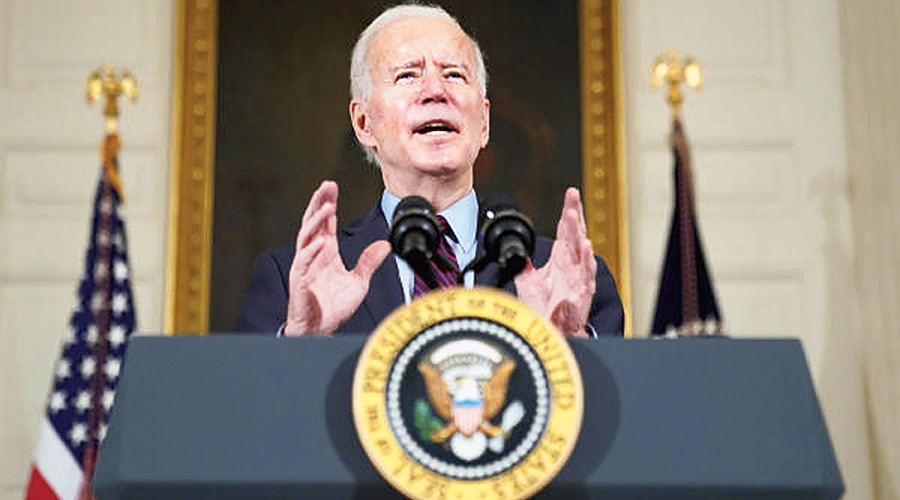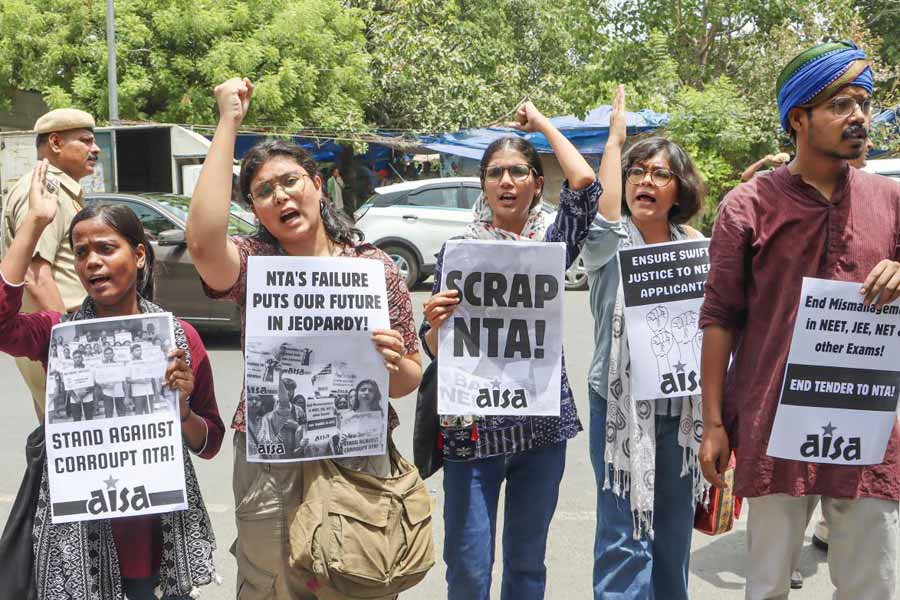President Biden offered a defiant defence on Monday of his decision to withdraw troops from Afghanistan, blaming the swift collapse of the Afghan government and chaotic scenes at the Kabul airport on the refusal of the country’s military to stand and fight in the face of the Taliban advance.
Speaking to the American people from the East Room after returning briefly to the White House from Camp David, Biden said he had no regrets about his decision to end the longest war in US history. But he lamented that two decades of support failed to turn the Afghan military into a force capable of securing its own country.
“We gave them every tool they could need. We paid their salaries. Provided for the maintenance of their airplanes,” Biden said.
“We gave them every chance to determine their own future. What we could not provide was the will to fight for that future.”
Biden acknowledged that the Taliban victory had come much faster than the US had expected and that the withdrawal was “hard and messy”. As the fourth President to preside over the war in Afghanistan, though, he said that “the buck stops with me”.
“I stand squarely behind my decision,” he said, adding that he would not “shrink from my share of responsibility for where we are today”.
He directed a question to critics of the withdrawal, asking, “How many more generations of America’s daughters and sons would you have me send to fight Afghans — Afghanistan’s civil war, when Afghan troops will not?”
Biden spoke after dramatic images showed a frantic scramble to evacuate the American embassy in Kabul as Taliban fighters advanced, drawing grim comparisons to America’s retreat from Saigon at the end of the Vietnam War. Footage of people clinging to a hulking US military transport, even as it left the ground, quickly circulated around the world.
But in his speech, Biden spent far more time defending his decision to depart from Afghanistan than the chaotic way it was carried out.
The Taliban cemented their control of Afghanistan on Monday, with scenes of handoffs to insurgent fighters playing out across the country and reports that the Taliban were searching for people they considered collaborators of the Americans and the fallen government.
In Washington, the Pentagon said troops had secured the airport in Kabul, where flights resumed after an earlier pause. Officials said there would be 6,000 American troops conducting security at the airport and helping the evacuation by later this week. State department officials said on Monday that the administration had evacuated 3,600 people since mid-July, including about 2,000 Afghans who qualified for special immigrant visas.
Biden rejected criticism from allies and adversaries, insisting that his administration had planned for the possibility of a rapid Taliban takeover and expressing pride that diplomats and other Americans had been evacuated to relative safety at the airport.
“Afghanistan political leaders gave up and fled the country,” he said, accusing the military of laying down its arms after two decades of US training and hundreds of billions of dollars in equipment and resources. “If anything, the developments of the past week reinforced that ending US military involvement in Afghanistan now was the right decision.”
Biden said President Ashraf Ghani, who escaped the country over the weekend as the Taliban advanced, failed to live up to his promise that the Afghan military was prepared to defend the country after the last American forces departed.
“Mr. Ghani insisted the Afghan forces would fight, but obviously he was wrong,” Biden said.
The political effects of the collapse of the Afghan government caught the White House off guard, even as criticism poured in from Republican and Democratic lawmakers, Afghan activists, foreign policy experts and officials from previous administrations.
On Capitol Hill, Biden’s speech stemmed some of the fallout.
Democrats who had criticised the President over the weekend praised him for laying out the costs of America’s lengthy involvement in the war.
“President Biden understands history when it comes to Afghanistan,” said Senator Richard J. Durbin of Illinois, a member of Democratic leadership.
“He made the difficult decision to not hand over this longest of American wars to a fifth president, and had he walked away from the withdraw agreement originally negotiated by President Trump, Taliban attacks on US forces would have restarted and required yet another surge in US troops.”
New York Times News Service











